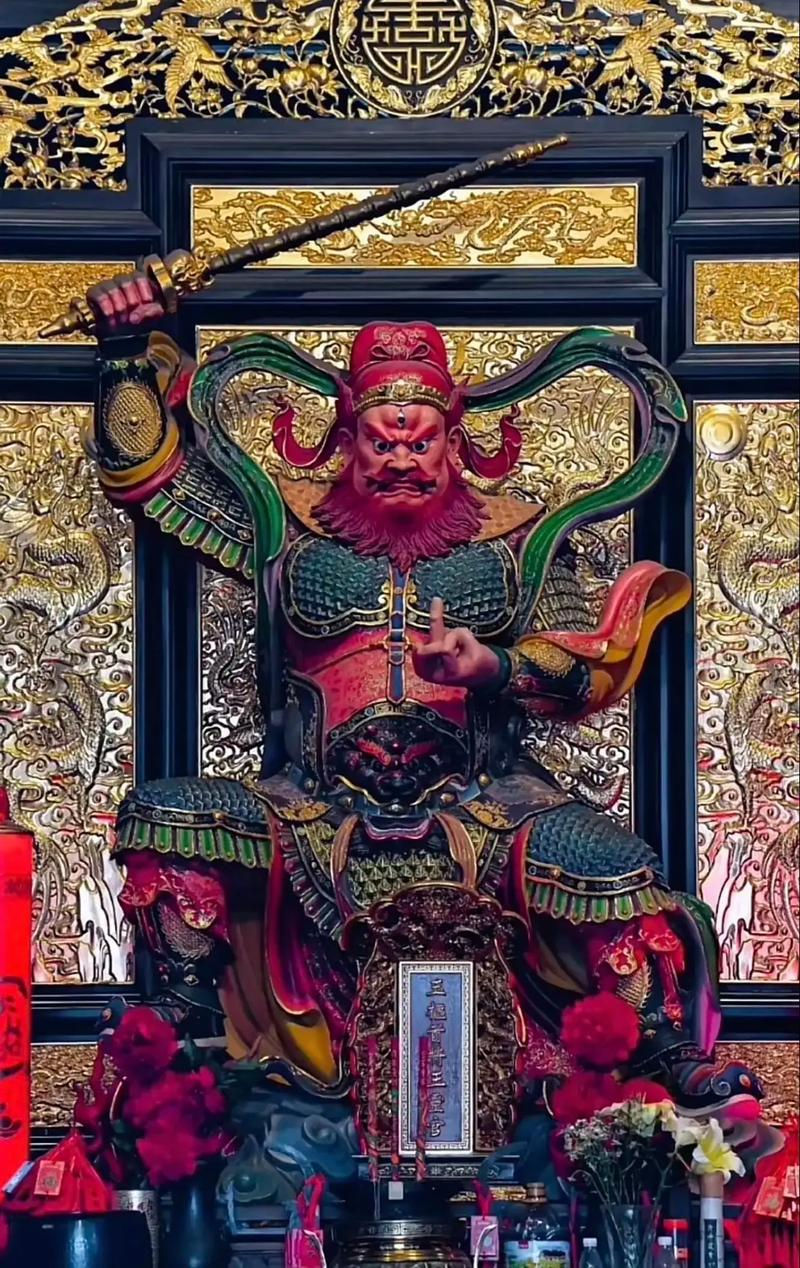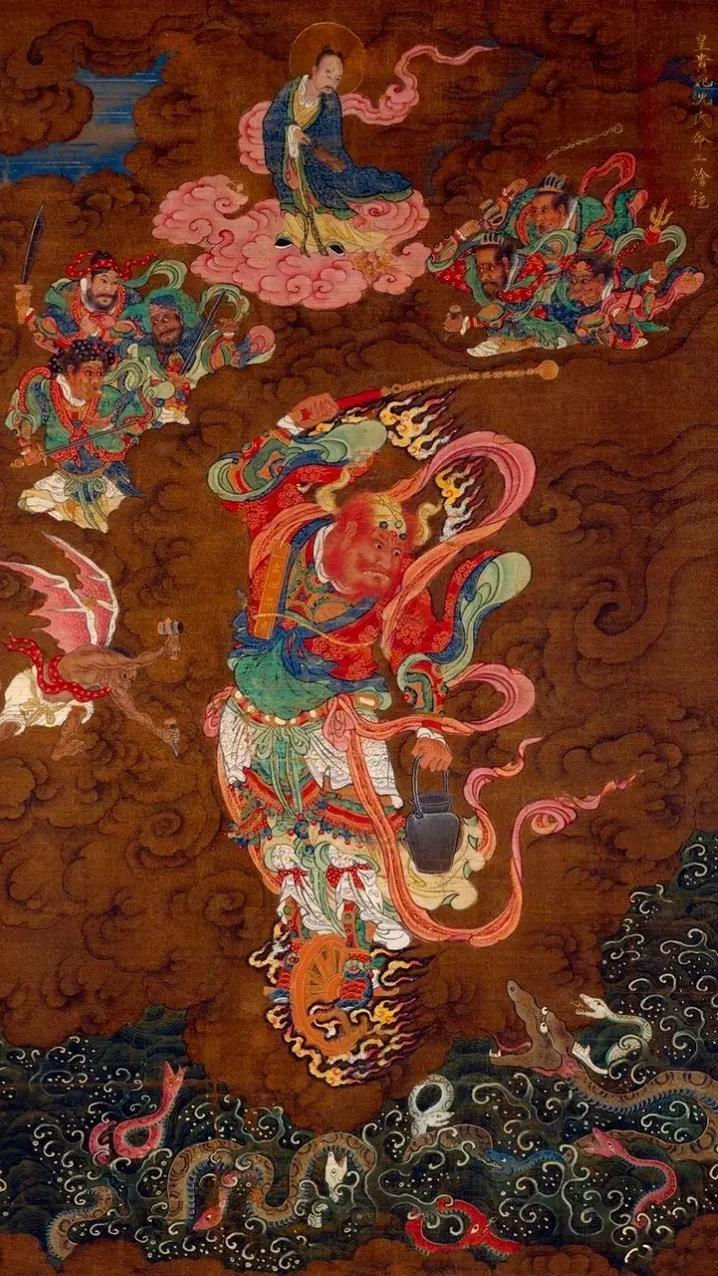Wang Lingguan王灵官 The Celestial Guardian of Daoism
- Даосская Ассоциация России

- Jul 11
- 3 min read
Cheng Lijia
11/07/2025
🌌 The Sacred Protector: Between History and Legend
Wang Lingguan (王灵官, Wáng Língguān) is one of the most powerful and revered guardians in the Daoist tradition, a formidable Celestial General whose might ranges from exorcising demons to warding off worldly misfortunes. His image, imbued with mysticism and spiritual power, holds a special place in the pantheon of the Zhengyi school, as well as in folk beliefs and even Buddhist temple guardianship.

📜 Origins: From Earthly Warrior to Divine Protector
1. The Legend of Transformation: From Darkness to Light
The sacred text <Lingguan Jing> (灵官经, "Sripture of Lingguan") recounts that Wang Lingguan was originally a powerful but malevolent spirit who sowed chaos. His fate changed upon meeting the great Daoist master Sa Shoujian (萨守坚, Sà Shǒujiān), who subdued him in a spiritual battle. Defeated yet enlightened, Wang Lingguan repented, became Sa Shoujian's loyal disciple, and was granted the highest rank of Protector of Righteousness by the Heavens.
2. Role in the Spiritual World
Supreme Guardian of the Jade Emperor (玉皇大帝, Yùhuáng Dàdì): Stands by his throne, repelling any evil schemes.
Patron of Exorcists: Daoist priests invoke him in rituals to expel unclean spirits and purify spaces.
Protector of the Slandered: People turn to him when pursued by false accusations, envy, or "invisible enemies."
🏮 The worship of Wang Lingguan: Fire, Steel, and Grace
1. Temples and Symbols
His altars are always positioned at the entrance to Daoist temples – an unwavering shield between the human world and the forces of darkness.
Folk belief sometimes confuses him with Guan Yu (关帝, Guāndì), but Wang Lingguan is not a warrior; he is a spiritual guardian whose power lies in purification and protection from defilement.
2. Sacred Rituals
The 15th day of the 6th lunar month (July 9th, 2025) – the day of his special veneration. On this day:
◦ Fire basins are lit (symbolizing his fiery whip).
◦ Amulets are consecrated (e.g., '吉祥物' - jíxiángwù, signs of luck and protection).
◦ Fasting and prayers are performed to strengthen the connection with his energy.
3. Influence Beyond Religion
Theater and Opera:** He is depicted with a crimson face and armor, emphasizing his formidable power.
Modern China: Businessmen seek his patronage against unscrupulous competitors, while families ask for protection from the evil eye and illnesses.
------
☯️ Iconography: A Countenance of Wrath that Purifies the World
The image of Wang Lingguan is a visual prayer for strength and protection:
1. Countenance:
Crimson Hue:Symbolizes wrath against evil.
Third Eye: The all-seeing eye, discerning even hidden defilement.
2. Attire:
Golden Armor: Sign of his celestial rank.
Flaming Mantle: Reflects his fiery nature.
3. Attributes:
Fiery Whip: Shatters demons.
Golden Mace:*Authority over dark forces.
4. Pose:
Tramples a Demon:Triumph of light over darkness.
"His images can be found by searching for '王灵官 画像' (Wáng Língguān huàxiàng) or 'Wang Lingguan Taoist art'. In Zhengyi school temples, his statues greet believers at the gates – as if a reminder: 'Evil shall not pass'."
🌟 Why is he Venerated? The Philosophy of the Image
Wang Lingguan embodies a Taoist parable about the victory of spirit over chaos. His story teaches:
Redemption is possible, even for those who were in darkness.
True strength lies in protecting others, not in destruction.
Spiritual vigilance (his third eye) is more important than physical might.
On his feast day (15th of the 6th lunar month), Taoists also honor Lü Dongbin, but the emphasis on purification and protection makes Wang Lingguan the central figure of the day.





Comments